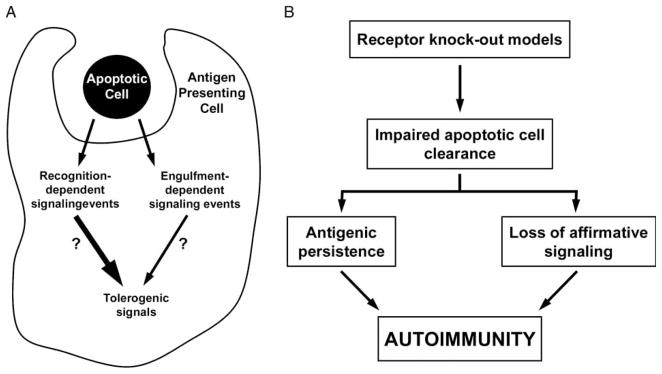Figure 3.
Exposure to apoptotic cells induces multiple signaling events that contribute to immune homeostasis. (A) The interaction of phagocytes with apoptotic cells results in a number of signaling events that are dependent upon both receptor-mediated recognition and engulfment of the apoptotic target (summarized in Figure 1). Among the signaling events induced by apoptotic cells, we speculate that some play a critical role in maintaining self-tolerance and preventing autoimmunity. (B) According to the model we suggest, loss of self-tolerance, with resultant autoimmunity, may occur through one of two fundamental mechanisms. First, impaired clearance of apoptotic cells, as may occur through targeted deletion of relevant genes, results in a decreased interaction of apoptotic cells with phagocytes, and therefore a decreased amount of tolerogenic signals within the phagocyte. The role of antigenic persistence is less clear, since apoptotic cells, at all stages, irrespective of membrane integrity, elicit identical signaling events. Alternatively, inherited or acquired abnormalities within the tolerogenic signaling pathways that are induced by apoptotic cells may constitute a predisposing background for the development of autoimmunity.

